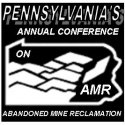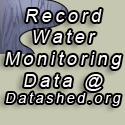Two bills were introduced in the U.S. House of Representatives last week, related to “Environmental Good Samaritan Legislation”:
H.R. 3843 (Rep. Doug Lamborn), To authorize for a 7-year period of the collection of claim location and maintenance fees, and for other purposes; Also known as the ‘‘Locatable Minerals Claim Location and Maintenance Fees Act of 2015.’’
and
H.R. 3844 (Rep. Jody Hice), To establish the Energy and Minerals Reclamation Foundation to encourage, obtain, and use gifts, devises, and bequests for projects to reclaim abandoned mine lands and orphaned oil and gas well sites, and for other purposes; Also known as the “Energy and Minerals Reclamation Foundation Establishment Act of 2015.”
The first bill establishes a division between active vs. inactive and abandoned non-coal mine lands, then sets up a program to deal with the Abandoned Non-coal Mine Lands within the Department of the Interior Bureau of Land Management. This authority is similar to the Surface Mining Control and Reclamation Act of 1972, established for coal mines. Lastly, a permitting authority may issue a permit to a Good Samaritan to carry out cleanup of an abandoned mine land (coal or non-coal), which would exempt them from strict Clean Water Act policies. The term Good Samaritan is defined as “any person that did not participate in any way in the creation of, or activities that caused, any historic mine residue at the inactive or abandoned mine site.”
The second bill is more concerning, however. It establishes a foundation to manage federally and privately matched dollars to help clean up abandoned mine lands and orphaned gas wells, touted as being similar to the National Fish and Wildlife Foundation (NFWF). While at initial glance the legislation to establish a foundation for this purpose seems worthwhile, there are some special powers that it lends and special interests that it seems to serve. When delving into the details, the foundation seems less and less like NFWF. For instance, a board member for this foundation must be “educated or have experience in energy or minerals production and reclamation of mine lands or oil and gas fields; or energy and mineral resource financing, law, or research.” This qualification seems to leave out citizen involvement and bears heavily on industry experience. However, the initial board would be determined by the Interstate Mining Compact Commission and the Interstate Oil and Gas Compact Commission, both are coalitions of mining state governors and their staff that deal with mineral resources. This affiliation seems to be a positive. A controversial part of the bill is the Acquisition of Real Property and Exemption from Condemnation, which could be seen as an encroachment on state and local government rights. Lastly, the pots of federal money to be allocated are a few million dollars. In Pennsylvania alone, abandoned mine lands are a 15 billion dollar problem. This proposed foundation would serve a national arena of abandoned mine lands and will need a heavy influx of private donations for the program to be successful.
Please see the related article from NPR that talks about the impetus of this legislation, which swirls around the Animas River spill that occurred only a few month ago. In this news clip, a legislator warns, “these so-called Good Samaritan waivers – unless they are very carefully crafted – are not the solution.” They are controversial indeed, but have some merit. We understand legislators are willing to hear comments and make the appropriate changes.
EPCAMR is continuing to review each piece of legislation carefully and plans to comment. We would encourage you to share your comments as well. The comment period for both bills will open November 4th and the window should extend into early December.











